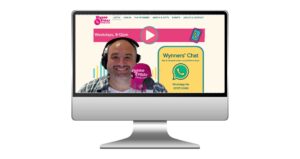UK employee anxiety levels increased by 240% in one year, according to research

Anxiety in employees has rocketed over the last year, according to employee engagement and survey experts, Inpulse.
The research, which includes views of 3,4411 UK employees, shows that Anxiety is the most dominant negative emotion at work and has risen 240% over the same period as last year – up from 5% to 17%. Stress is another high negative emotion for employees, at 11%, while Isolation rates stands at 7%.
An emotion becomes dominant and will be felt and experienced in the organisation if it rises above 10% according to Inpulse, as it impacts on an employer’s atmosphere and culture.
The survey took into account 11,000 employees internationally. Stress and Isolation show at 10% and 7%, but anxiety shows at 12%, somewhat lower than the UK.
Matt Stephens, CEO and Founder of Inpulse and author of The Engagement Revolution, explained: “Extreme negative emotions are being driven by fears of job security (24%) and high workload (16%) and it simply is not sustainable for individuals to feel this for long periods of time.
“With so many people working from home, it has been harder to separate work life and personal life – for many of us the two have become intertwined. Therefore, as employers we need to go beyond only caring for employees’ ‘work self’ and start to care for the whole being.”
Employers can take positive action to support their people with the issues of Anxiety, Stress and Isolation:
Anxiety:
The pandemic has highlighted fragility and vulnerability in people, with many losing their sense of safety. Employers can help their employees by being aware of the issue, ‘bringing it to the table’ so it is not a taboo subject and ensuring all communications are sensitive to the situation. Managers should be able to talk about Anxiety with their teams, signposting individuals to gain further support.
Stress:
Workplace stress has predominantly been driven by workload and a blurred work/life balance. With many people now working from home, they are also undertaking caring responsibilities – childcare, home-schooling or caring for vulnerable or elderly family members. Employers can ease the pressures, perhaps by providing flexible working hours and agile working. This sounds simple in principle but does require a shift in expectations and clear communications, including through line management. For example, people in an always-on environment feel pressure if they get an email at 10pm, so communicating that it doesn’t need a response till the morning is a welcomed courtesy. Equally, if childcare is an issue for employees, a central hub or designated communication channel to access resources, share advice and problem-solve together builds community and encourages collaboration.
Isolation:
We can all be more intentional about creating meaningful interactions with our colleagues. Managers can also organise social events like a ‘Happy Hour’ one afternoon a week where teams can spend time together discussing non-work-related topics by video call. Importantly, line managers should ideally call each of their direct reports once a week or set up a network within the team so people are allocated a ‘phone call buddy’ each week.
Matt Stephens summarised: “To us, the future isn’t about helping humans thrive as a resource, it’s helping them thrive as human beings. Emotions of anxiety, stress and isolation will all be building to impact overall mental health. The mix could be causing irreparable damage not only to individuals’ own emotional health, but also to the employer relationship.”





